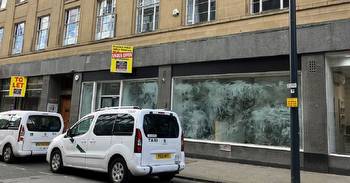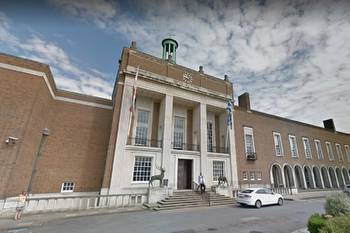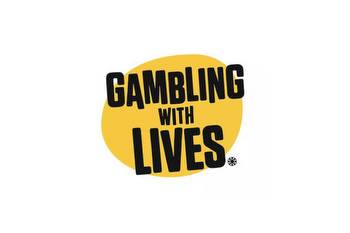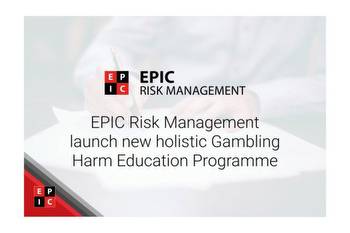New initiative to teach Scottish pupils of the dangers of gambling

A PROGRAMME is being developed for schools in Glasgow to help educate young people about gambling harms, as part of efforts to tackle it as a public health issue.
The initiative has been revealed as a major summit is being held by the city council to examine how to address problem gambling.
Glasgow has the most betting shops in the UK with one for every 3264 people, a recent report by the University of Bristol found.
There are also huge concerns about the explosion in online gambling in recent years, with concerns harms may have been exacerbated during lockdown.
The two-day online summit on September 13 and 14 is being organised by Glasgow City Council, supported by Public Health Scotland and the UK Gambling Commission.
It will bring together researchers, policy-makers and health experts to explore the scale of gambling harms, as well as prevention, education and treatment.
Bailie Annette Christie, convener for wellbeing, empowerment, community and citizen engagement at Glasgow City Council’s policy development committee, said: “Right now there is a programme being developed, a pilot research study in some Glasgow schools looking at early intervention and education of young people to understand the harms that can be caused by gambling.
“Much of the advertising and the marketing of it seems very exciting now – adverts on TV, very colourful, celebrity endorsements.
“There is also a conflation between gambling and gaming. That has just grown dramatically and it is training a young mind on gambling habits.”
Christie said the programme was still at an early phase, with research in secondary schools being undertaken by the University of Edinburgh before it would be rolled out completely.
She said that the summit had grown out of work which had been under way since 2014, which was initially focused on licensing issues and reducing the number of gambling outlets in the city.
But she added: “It is very much a changing landscape and the pandemic has highlighted that.
“Obviously during lockdown bookmakers and other retail outlets were closed, so that avenue for exposure had been taken away. But online just exploded.
“It had been growing and changing for many years and the demographics of those impacted by gambling harms had changed.
“There is often a stereotype of going to the bookmakers and men of a certain age – but that is not the case.
“Anyone can be affected by gambling harms – men, women and young people.”
Gambling is big business which has grown in recent years, with mobile apps giving people access to betting at the touch of a button. The industry is worth around £14 billion every year in the UK.
Earlier this year, Denise Coates (below), a director of firm Bet365, made headlines when she paid herself £469 million in a single year – reported to be the biggest salary in UK history.
When it comes to the scale of the harms being caused by gambling, experts say it is difficult to quantify.
Dr Heather Wardle, reader in social sciences at Glasgow University and one of the speakers at the conference, said the issue had failed to get the recognition it deserved.
“I have worked in the field for a very long time now and it is only just recently this idea that we should treat it as a public health issue, which we have been arguing for years and years, is starting to gain some traction,” she said.
“It absolutely should be treated as a public health issue, not least because the scale of the harms that are associated with gambling have been underestimated.
“The harms that emanate from gambling have a whole range of repercussions for the individual, but also for their families, the communities and for society more broadly.
“We know for example there is a really strong relationship between people experiencing gambling harms and suicidality and even more so for younger people.
“We need to take a much greater joined-up systematic approach to dealing with the harms that gambling generates than we have done to date.”
The most recent statistics from the Scottish Health Survey in 2017 found 0.8% of respondents identified as problem gamblers and 0.9% were at “moderate risk” of developing problems.
But Wardle said: “What those figures are measuring is what we call problem gambling – which is the extent to which people have a diagnosable, recognised mental disorder.
“What it is not measuring is the broader range of harms that people experience – you don’t have to have a recognisable mental disorder to have experienced harms from your gambling.
“Gambling is the kind of thing where you could go into the bookmakers or go online and within half an hour you could have got yourself into serious difficulty.”
She added: “That is why the harms have been underestimated, as we haven’t looked at those lower-level harms, we haven’t got a good measure of them.
“And it is also not taking into account what happens to people who are the ‘affected others’ – the parents, the partners, the children of people who are experiencing difficulty with their harms.
“I would treat those figures as a very cautious conservative estimate of the scale of problem.”
Wardle said there had been a government push with the Gambling Act when it was introduced by Labour in 2005 to redefine gambling as a “normal, ordinary leisure activity”.
She hit back: “It is not like going to the cinema, it is not the same as reading a book or listening to music. It is a commodity that has a risk of harm to health for some people.”
The legislation is currently being reviewed to ensure industry regulations are “fit for the digital age”.
The Gambling Related Harm All-party Parliamentary Group has called for a raft of measures, including stake limits for online gambling, a ban on all forms of betting advertising in sport and a large-scale prevalence study to assess the scale of the problem.
Industry body the Betting and Gaming Council has welcomed the review as an “opportunity to introduce much-needed changes” and said its members had taken action such as encouraging customers to set deposit limits and spending £100 million on research, education and treatment of problem gambling.
A spokesman said: “According to the Government, the rate of problem gambling is 0.5% and has been stable for the last 20 years. But one problem gambler is one too many, which is why we have taken a number of steps to promote safer gambling.”
































